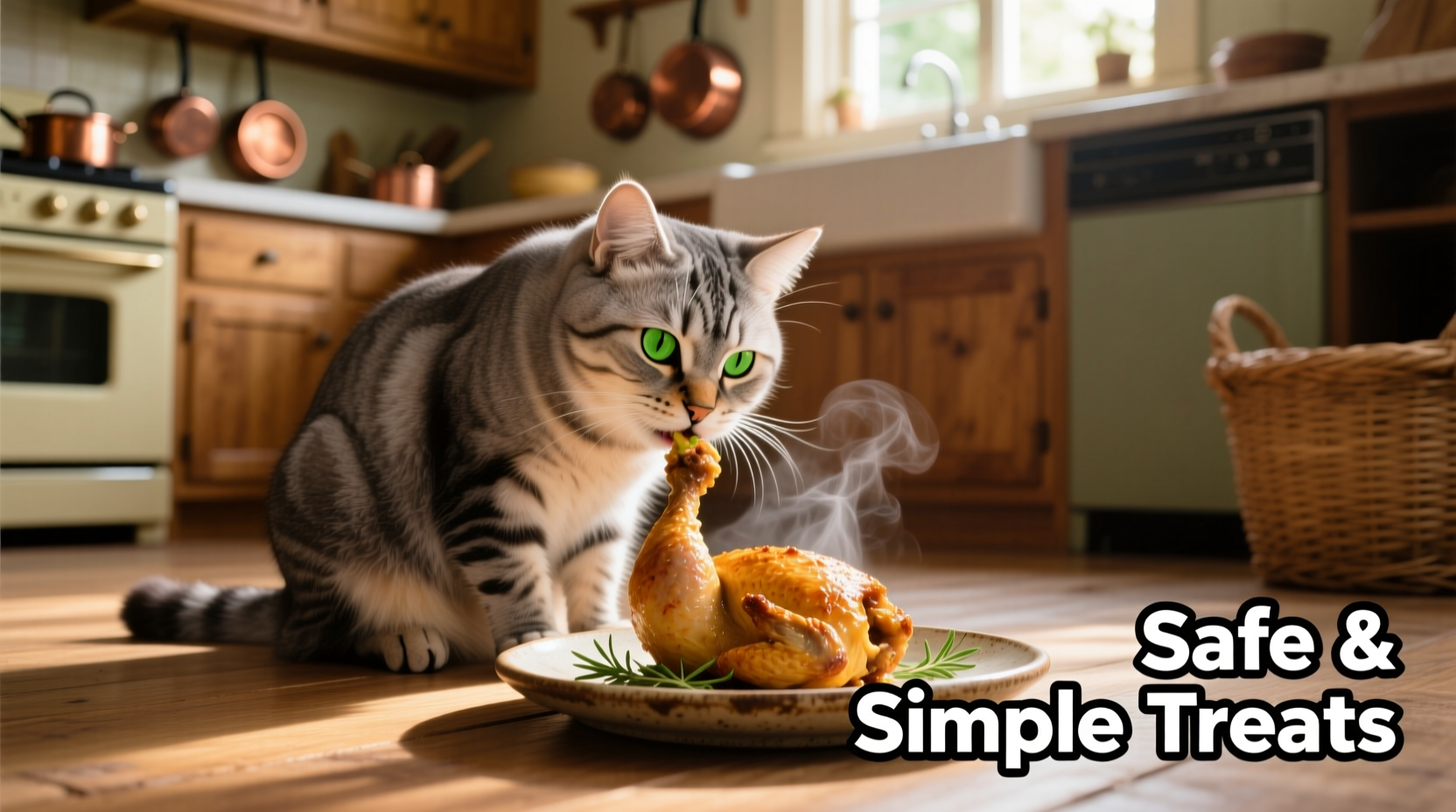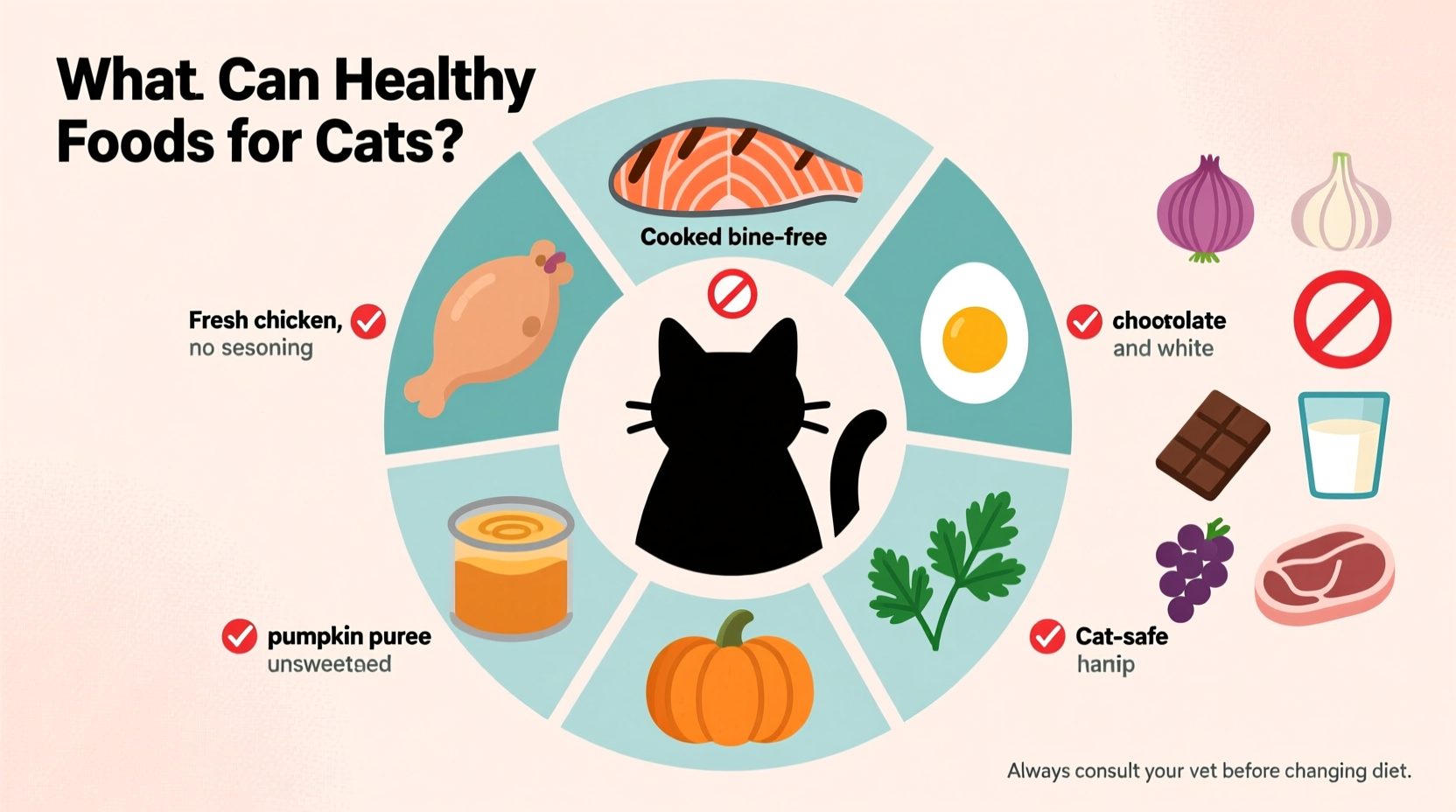Understanding Feline Nutrition: What Your Cat Can and Cannot Eat
As obligate carnivores, cats require meat-based diets to thrive, but many human foods can supplement their nutrition when offered safely. This guide provides vet-approved information on human foods that are safe for cats, dangerous items to avoid completely, and practical feeding guidelines to keep your feline companion healthy.
Immediate Danger: Foods That Are Toxic to Cats
Some common household foods pose serious risks to cats. The American Veterinary Medical Association identifies these items as potentially fatal and requiring immediate veterinary attention if consumed:
| Toxic Food | Danger Level | Symptoms to Watch For |
|---|---|---|
| Chocolate | High | Vomiting, diarrhea, rapid breathing, seizures |
| Onions & Garlic | Extreme | Weakness, pale gums, collapse (hemolytic anemia) |
| Grapes & Raisins | High | Vomiting, decreased urination, kidney failure |
| Xylitol (artificial sweetener) | Extreme | Loss of coordination, seizures, liver failure |
| Raw Dough (yeast) | Moderate | Abdominal pain, bloating, ethanol poisoning |
According to Cornell University's Feline Health Center, even small amounts of these toxic substances can cause irreversible damage. Their research shows that onion consumption as low as 5g per kg of body weight can trigger hemolytic anemia in cats.
Safe Human Foods for Cats: What You Can Share
While commercial cat food should provide 90% of your cat's nutrition, these human foods make safe occasional treats when properly prepared:
- Cooked meats: Unseasoned chicken, turkey, beef, or fish (max 10% of daily calories)
- Cooked eggs: Fully cooked scrambled or boiled eggs (no more than 1 small egg weekly)
- Certain vegetables: Cooked carrots, zucchini, or green beans (finely chopped)
- Small dairy portions: A teaspoon of plain yogurt or cottage cheese (many cats are lactose intolerant)

Important Context: When Safe Foods Become Risky
What's safe for one cat might harm another depending on specific circumstances. The American Association of Feline Practitioners emphasizes these critical context boundaries:
- Kittens under 12 months: Should avoid all human food except specially formulated kitten food
- Cats with kidney disease: Must avoid high-phosphorus foods like dairy and organ meats
- Overweight cats: Should receive treats comprising no more than 5% of daily calories
- After dental surgery: Require soft or liquid foods for 7-10 days
Recent research published in the Journal of Feline Medicine and Surgery shows that 68% of cat owners mistakenly believe table scraps are harmless, while veterinary data indicates diet-related issues account for 23% of emergency feline visits.
Introducing New Foods Safely: A Step-by-Step Guide
Follow this vet-recommended process when introducing any new food to your cat's diet:
- Research first: Verify safety with your veterinarian or trusted sources like the ASPCA Animal Poison Control Center
- Start tiny: Offer just 1-2 small pieces (about the size of a pea)
- Monitor closely: Watch for 24 hours for vomiting, diarrhea, or unusual behavior
- Gradual increase: If no reaction, slowly increase to appropriate portion size over 7-10 days
- Maintain balance: Ensure treats never exceed 10% of daily caloric intake
Common Misconceptions About Cat Diets
Many cat owners operate under false assumptions about feline nutrition. The American Association of Feline Practitioners addresses these widespread myths:
- Myth: Cats can thrive on a vegetarian diet
Fact: Cats require taurine and arachidonic acid found only in animal tissue - Myth: Milk is good for cats
Fact: Most adult cats are lactose intolerant and dairy causes digestive upset - Myth: Fish is the ideal cat food
Fact: Excessive fish can cause vitamin deficiencies and mercury poisoning
When to Contact Your Veterinarian Immediately
Seek emergency veterinary care if your cat consumes any toxic food or shows these symptoms after eating human food:
- Continuous vomiting or diarrhea lasting more than 4 hours
- Difficulty breathing or excessive panting
- Seizures or loss of consciousness
- Refusal to eat or drink for more than 12 hours
- Unusual lethargy or weakness
Remember that the ASPCA Animal Poison Control Center operates 24/7 at (888) 426-4435 for urgent consultation about potential food toxicities.











 浙公网安备
33010002000092号
浙公网安备
33010002000092号 浙B2-20120091-4
浙B2-20120091-4